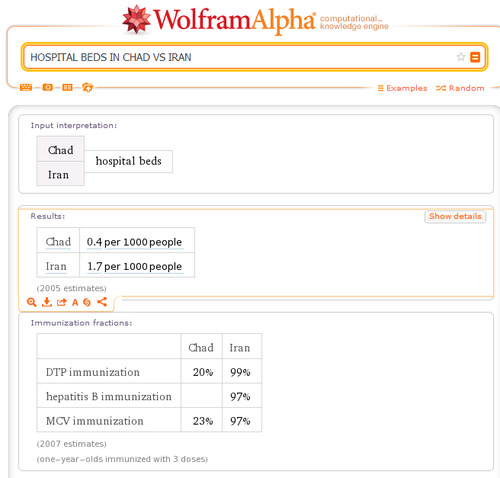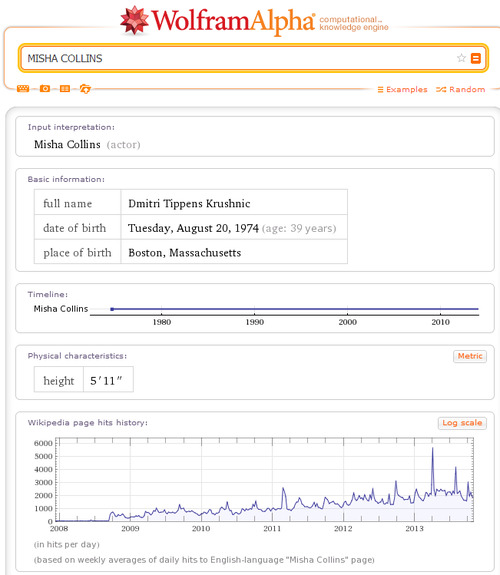Text
UM GUYS. I JUST NOTICED A CRAZY ISSUE W THE TUMBLR UPDATE.
47K notes
·
View notes
Note
HIII this is probably a long shot but i was wondering if this ask
https://www.tumblr.com/roleplayfinder/700587059819298816/hello-im-a-18-roleplayer-theythem-looking was still avail?? ty in advance !
Yes it is! Feel free to reach out.
0 notes
Text
A group of rough looking boys walked past me today and all I heard of their conversation was “he’s got that anxiety disorder bro so I went with him so he’d be more comfortable” and it made me realise the world isn’t all that bad
1M notes
·
View notes
Text
LISTEN UP MOTHER FUCKERS
SEE THIS WEBSITE?
ITS CALLED WOLFRAM ALPHA
THIS IS THE BEST GODDAMN WEBSITE FOR ACADEMIC SHIT. FUCK GOOGLE.
THIS MOTHERFUCKER WILL LET YOU SEARCH “HOSPITAL BEDS IN CHAD VS. IRAN”

AND IT GIVES YOU A STRAIGHT GODDAMN ANSWER
MAYBE YOU’RE NOT INTERESTED IN DOCTORNESS OF THIRD WORLD COUNTRIES COOL SHIT
HAVING TROUBLE WITH MATH?

HOLY SHIT
OR MAYBE YOU WANNA DICK AROUND

WHATEVER THE FUCK YOU WANT
639K notes
·
View notes
Video
250K notes
·
View notes
Text
so. bad news. vex is unconscious. good news is I love watching percival fredrickstein von musel klossowski de rolo inhabit taliesin



2K notes
·
View notes
Text
Never mind the “Who shot first?” stuff; THIS is the defining moment of the Han Solo character:

Everyone else was just like: “Oh, fuck: It’s Vader!” and standing around in shock and terror when Vader was revealed. Even Chewie.
Most people, I suspect, would have that reaction.
Meanwhile, Han’s first reaction, instinctively, in less than a second, was to grab a gun and try to flat-out end the guy.
He failed, of course. But God Damn if you can’t appreciate the effort.
125K notes
·
View notes
Text
“in order to create loving males we need to love males” means teach boys that they can be themselves without being less of a man. it means being encouraging and nurturing of their emotions so they don’t become cold and hateful. it means showing boys, early in their lives, that they have value outside of what our society deems proper masculinity. what it doesn’t mean is that it’s our job to handhold men who see women as walking sex toys through the concept of empathy, and maybe if we’re really really nice to them and don’t say things that hurt their feelings they’ll stop killing us for saying no
28K notes
·
View notes
Text

Image description: It's a drawing of Aayla Secura and Quinlan Vos from Star Wars. They're both very young, with Aayla being a toddler. Quinlan is lifting the long sleeve of his robe to show Aayla hiding inside it. Quinlan is grinning affectionately while Aayla seems to be laughing nervously. The prompt of this drawing was to draw Aayla trying to convince her future teacher to take her with him on a mission. End of description.
5K notes
·
View notes
Text
Officially just got blocked for the first time ever 😭 I wish I knew what I did, but they just dipped. I hate not knowing why, because if it was something I did, I’d like to know so I can keep it in mind for the future.
1 note
·
View note
Text
I am terrified that if I come out to my dad, I’ll stop being his little girl
2 notes
·
View notes
Text
I was today years old when I learned that when you type “otp: true” in AO3 search results it filters out fics with additional ships, leaving only the fics where your otp is the main ship

217K notes
·
View notes
Text
rebuttable presumption masterpost
by popular demand, ta-da!
if you’re new to rebuttable presumption, here’s a quick 10 point summary to the verse.
quick answers to FAQs: 1) idk if i’ll ever put this up on ao3. it’s going to be a nightmare to edit, and, unfortunately, i don’t have that sort of time on my hands; 2) if you want to play around with this verse (e.g. write any of the aus that i’m not writing ahahaha), go for it; 3) i know there’re still bits y’all want to read (e.g. wangxian wedding) - there’re still prompts i’m keeping in drafts, and will be occasionally dropping extras, but for all intents and purposes, the main timeline is done and any extras shouldn’t affect that timeline, so i’m marking rp verse as completed.
current as at: 23 march 2021
status: completed (unscheduled extras will be added from time to time)
Keep reading
3K notes
·
View notes
Text
In mine and many other east Asian cultures, the dragon traditionally symbolises things like power, wealth and strength (imperial symbol and all)
I think we often forget that in the story of the Great Race, the dragon came in fifth because it'd stopped to give people rain. Then it'd stopped again to push a rabbit adrift on a log across the wide river so it reached the shore safely (that's why the Rabbit year comes before the Dragon).
Dragons aren't meant to just be powerful - they are meant to do good with such power, and to help those in need.
So in this lunar new year, I hope you gain more power, so that you might be able to help others. I pray you have abundant resources so you may give to yourself and those around you. I wish you courage, endurance, kindness and generosity, for yourself and your people.
I hope you, and I, will be rain givers, life preservers, joy bringers.
I hope we will be dragons.
96K notes
·
View notes
Text
A Guide to Historically Accurate Regency-Era Names

I recently received a message from a historical romance writer asking if I knew any good resources for finding historically accurate Regency-era names for their characters.
Not knowing any off the top of my head, I dug around online a bit and found there really isn’t much out there. The vast majority of search results were Buzzfeed-style listicles which range from accurate-adjacent to really, really, really bad.
I did find a few blog posts with fairly decent name lists, but noticed that even these have very little indication as to each name’s relative popularity as those statistical breakdowns really don't exist.
I began writing up a response with this information, but then I (being a research addict who was currently snowed in after a blizzard) thought hey - if there aren’t any good resources out there why not make one myself?
As I lacked any compiled data to work from, I had to do my own data wrangling on this project. Due to this fact, I limited the scope to what I thought would be the most useful for writers who focus on this era, namely - people of a marriageable age living in the wealthiest areas of London.
So with this in mind - I went through period records and compiled the names of 25,000 couples who were married in the City of Westminster (which includes Mayfair, St. James and Hyde Park) between 1804 to 1821.
So let’s see what all that data tells us…
To begin - I think it’s hard for us in the modern world with our wide and varied abundance of first names to conceive of just how POPULAR popular names of the past were.
If you were to take a modern sample of 25-year-old (born in 1998) American women, the most common name would be Emily with 1.35% of the total population. If you were to add the next four most popular names (Hannah, Samantha, Sarah and Ashley) these top five names would bring you to 5.5% of the total population. (source: Social Security Administration)
If you were to do the same survey in Regency London - the most common name would be Mary with 19.2% of the population. Add the next four most popular names (Elizabeth, Ann, Sarah and Jane) and with just 5 names you would have covered 62% of all women.
To hit 62% of the population in the modern survey it would take the top 400 names.
The top five Regency men’s names (John, William, Thomas, James and George) have nearly identical statistics as the women’s names.
I struggled for the better part of a week with how to present my findings, as a big list in alphabetical order really fails to get across the popularity factor and also isn’t the most tumblr-compatible format. And then my YouTube homepage recommended a random video of someone ranking all the books they’d read last year - and so I present…
The Regency Name Popularity Tier List
The Tiers
S+ - 10% of the population or greater. There is no modern equivalent to this level of popularity. 52% of the population had one of these 7 names.
S - 2-10%. There is still no modern equivalent to this level of popularity. Names in this percentage range in the past have included Mary and William in the 1880s and Jennifer in the late 1970s (topped out at 4%).
A - 1-2%. The top five modern names usually fall in this range. Kids with these names would probably include their last initial in class to avoid confusion. (1998 examples: Emily, Sarah, Ashley, Michael, Christopher, Brandon.)
B - .3-1%. Very common names. Would fall in the top 50 modern names. You would most likely know at least 1 person with these names. (1998 examples: Jessica, Megan, Allison, Justin, Ryan, Eric)
C - .17-.3%. Common names. Would fall in the modern top 100. You would probably know someone with these names, or at least know of them. (1998 examples: Chloe, Grace, Vanessa, Sean, Spencer, Seth)
D - .06-.17%. Less common names. In the modern top 250. You may not personally know someone with these names, but you’re aware of them. (1998 examples: Faith, Cassidy, Summer, Griffin, Dustin, Colby)
E - .02-.06%. Uncommon names. You’re aware these are names, but they are not common. Unusual enough they may be remarked upon. (1998 examples: Calista, Skye, Precious, Fabian, Justice, Lorenzo)
F - .01-.02%. Rare names. You may have heard of these names, but you probably don’t know anyone with one. Extremely unusual, and would likely be remarked upon. (1998 examples: Emerald, Lourdes, Serenity, Dario, Tavian, Adonis)
G - Very rare names. There are only a handful of people with these names in the entire country. You’ve never met anyone with this name.
H - Virtually non-existent. Names that theoretically could have existed in the Regency period (their original source pre-dates the early 19th century) but I found fewer than five (and often no) period examples of them being used in Regency England. (Example names taken from romance novels and online Regency name lists.)
Just to once again reinforce how POPULAR popular names were before we get to the tier lists - statistically, in a ballroom of 100 people in Regency London: 80 would have names from tiers S+/S. An additional 15 people would have names from tiers A/B and C. 4 of the remaining 5 would have names from D/E. Only one would have a name from below tier E.
Women's Names
S+ Mary, Elizabeth, Ann, Sarah
S - Jane, Mary Ann+, Hannah, Susannah, Margaret, Catherine, Martha, Charlotte, Maria
A - Frances, Harriet, Sophia, Eleanor, Rebecca
B - Alice, Amelia, Bridget~, Caroline, Eliza, Esther, Isabella, Louisa, Lucy, Lydia, Phoebe, Rachel, Susan
C - Ellen, Fanny*, Grace, Henrietta, Hester, Jemima, Matilda, Priscilla
D - Abigail, Agnes, Amy, Augusta, Barbara, Betsy*, Betty*, Cecilia, Christiana, Clarissa, Deborah, Diana, Dinah, Dorothy, Emily, Emma, Georgiana, Helen, Janet^, Joanna, Johanna, Judith, Julia, Kezia, Kitty*, Letitia, Nancy*, Ruth, Winifred>
E - Arabella, Celia, Charity, Clara, Cordelia, Dorcas, Eve, Georgina, Honor, Honora, Jennet^, Jessie*^, Joan, Joyce, Juliana, Juliet, Lavinia, Leah, Margery, Marian, Marianne, Marie, Mercy, Miriam, Naomi, Patience, Penelope, Philadelphia, Phillis, Prudence, Rhoda, Rosanna, Rose, Rosetta, Rosina, Sabina, Selina, Sylvia, Theodosia, Theresa
F - (selected) Alicia, Bethia, Euphemia, Frederica, Helena, Leonora, Mariana, Millicent, Mirah, Olivia, Philippa, Rosamund, Sybella, Tabitha, Temperance, Theophila, Thomasin, Tryphena, Ursula, Virtue, Wilhelmina
G - (selected) Adelaide, Alethia, Angelina, Cassandra, Cherry, Constance, Delilah, Dorinda, Drusilla, Eva, Happy, Jessica, Josephine, Laura, Minerva, Octavia, Parthenia, Theodora, Violet, Zipporah
H - Alberta, Alexandra, Amber, Ashley, Calliope, Calpurnia, Chloe, Cressida, Cynthia, Daisy, Daphne, Elaine, Eloise, Estella, Lilian, Lilias, Francesca, Gabriella, Genevieve, Gwendoline, Hermione, Hyacinth, Inez, Iris, Kathleen, Madeline, Maude, Melody, Portia, Seabright, Seraphina, Sienna, Verity
Men's Names
S+ John, William, Thomas
S - James, George, Joseph, Richard, Robert, Charles, Henry, Edward, Samuel
A - Benjamin, (Mother’s/Grandmother’s maiden name used as first name)#
B - Alexander^, Andrew, Daniel, David, Edmund, Francis, Frederick, Isaac, Matthew, Michael, Patrick~, Peter, Philip, Stephen, Timothy
C - Abraham, Anthony, Christopher, Hugh>, Jeremiah, Jonathan, Nathaniel, Walter
D - Adam, Arthur, Bartholomew, Cornelius, Dennis, Evan>, Jacob, Job, Josiah, Joshua, Lawrence, Lewis, Luke, Mark, Martin, Moses, Nicholas, Owen>, Paul, Ralph, Simon
E - Aaron, Alfred, Allen, Ambrose, Amos, Archibald, Augustin, Augustus, Barnard, Barney, Bernard, Bryan, Caleb, Christian, Clement, Colin, Duncan^, Ebenezer, Edwin, Emanuel, Felix, Gabriel, Gerard, Gilbert, Giles, Griffith, Harry*, Herbert, Humphrey, Israel, Jabez, Jesse, Joel, Jonas, Lancelot, Matthias, Maurice, Miles, Oliver, Rees, Reuben, Roger, Rowland, Solomon, Theophilus, Valentine, Zachariah
F - (selected) Abel, Barnabus, Benedict, Connor, Elijah, Ernest, Gideon, Godfrey, Gregory, Hector, Horace, Horatio, Isaiah, Jasper, Levi, Marmaduke, Noah, Percival, Shadrach, Vincent
G - (selected) Albion, Darius, Christmas, Cleophas, Enoch, Ethelbert, Gavin, Griffin, Hercules, Hugo, Innocent, Justin, Maximilian, Methuselah, Peregrine, Phineas, Roland, Sebastian, Sylvester, Theodore, Titus, Zephaniah
H - Albinus, Americus, Cassian, Dominic, Eric, Milo, Rollo, Trevor, Tristan, Waldo, Xavier
& Men were sometimes given a family surname (most often their mother's or grandmother's maiden name) as their first name - the most famous example of this being Fitzwilliam Darcy. If you were to combine all surname-based first names as a single 'name' this is where the practice would rank.
*Rank as a given name, not a nickname
+If you count Mary Ann as a separate name from Mary - Mary would remain in S+ even without the Mary Anns included
~Primarily used by people of Irish descent
^Primarily used by people of Scottish descent
>Primarily used by people of Welsh descent
I was going to continue on and write about why Regency-era first names were so uniform, discuss historically accurate surnames, nicknames, and include a little guide to finding 'unique' names that are still historically accurate - but this post is already very, very long, so that will have to wait for a later date.
If anyone has any questions/comments/clarifications in the meantime feel free to message me.
Methodology notes: All data is from marriage records covering six parishes in the City of Westminster between 1804 and 1821. The total sample size was 50,950 individuals.
I chose marriage records rather than births/baptisms as I wanted to focus on individuals who were adults during the Regency era rather than newborns. I think many people make the mistake when researching historical names by using baby name data for the year their story takes place rather than 20 to 30 years prior, and I wanted to avoid that. If you are writing a story that takes place in 1930 you don’t want to research the top names for 1930, you need to be looking at 1910 or earlier if you are naming adult characters.
I combined (for my own sanity) names that are pronounced identically but have minor spelling differences: i.e. the data for Catherine also includes Catharines and Katherines, Susannah includes Susannas, Phoebe includes Phebes, etc.
The compound 'Mother's/Grandmother's maiden name used as first name' designation is an educated guesstimate based on what I recognized as known surnames, as I do not hate myself enough to go through 25,000+ individuals and confirm their mother's maiden names. So if the tally includes any individuals who just happened to be named Fitzroy/Hastings/Townsend/etc. because their parents liked the sound of it and not due to any familial relations - my bad.
I did a small comparative survey of 5,000 individuals in several rural communities in Rutland and Staffordshire (chosen because they had the cleanest data I could find and I was lazy) to see if there were any significant differences between urban and rural naming practices and found the results to be very similar. The most noticeable difference I observed was that the S+ tier names were even MORE popular in rural areas than in London. In Rutland between 1810 and 1820 Elizabeths comprised 21.4% of all brides vs. 15.3% in the London survey. All other S+ names also saw increases of between 1% and 6%. I also observed that the rural communities I surveyed saw a small, but noticeable and fairly consistent, increase in the use of names with Biblical origins.
Sources of the records I used for my survey:
Ancestry.com. England & Wales Marriages, 1538-1988 [database on-line].
Ancestry.com. Westminster, London, England, Church of England Marriages and Banns, 1754-1935 [database on-line].
13K notes
·
View notes
Text
zionists leave this blog and get fucked, israel is a genocidal colonizer state and no retaliation from Palestinians will justify it, nor will the actions of germany, a country that has given up zero of its own land to jews and decided to just continue colonizing western asia in the name of Helping Jews.
2K notes
·
View notes
